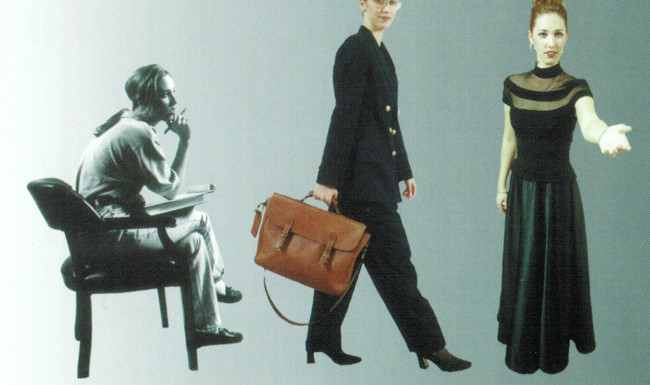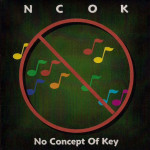Album Notes – Terry
Terry – recorded June – December 1997
During the recording of Leyth’s and my second album Audiofiction, I began to get to know the engineer Jim Pavett better. I learned he was a drummer in addition to a recording engineer and studio owner. I learned he had recorded local bands and that some of the local musicians were willing to be session musicians for a nominal fee. I liked the instrumental acoustic albums Leyth and I recorded but I also had songs with lyrics and vocal lines that I was interested in recording. These songs would translate well to a rock band.
I didn’t have to look far for material – I had spent the previous two years writing songs about a woman I worked with. I poured everything I had into these pieces of loneliness, frustration, disgust, bitterness, cynicism, despair, sorrow and anger. Upon giving Jim a 6 song demo of the material so he could recommend people to perform the parts which I could not, I was very pleased when he nominated himself for the drummer’s chair. I’d had him in mind the whole time. I think we took a month off after the completion of Audiofiction and then began rehearsing the songs for Terry in June. Terry is a whirlwind of memories for me. I hadn’t played with drums since Charles Gooden in the early 90s and had forgotten what an exhilarating feeling it is to have a drummer behind you driving the song. I gesticulated madly as Jim played; my arms’ flailing in sheer madness like some delusional conductor as I wildly pointed at the drum or cymbal I wanted him to play. I remember going home sore after the pseudo aerobic workout. It was during this album that I became acquainted with the technical terminology of music Leyth and I only played by feeling. Jim referenced “that bit in ¾ time” and I had to have him explain what ¾ meant. We used a click track which was the first time I’d ever played to a metronome. Looking back, we made the error of actually assuming my rhythm track was cohesive! The tempos change in nearly every song and from that point on in future albums the rhythm would be adjusted to adhere to a repetitive beat. A local progressive rock band Zen provided Ryan Maza on lead guitar, Scott Jeffers on vocals and the genius of Rich Katz on piano and keyboards. The enchanting Sapphire Kiefft (now Bell) lent both her proficient violin skills as well as her lovely singing voice to the album. Bass was mostly provided by the solid and reliable Jay Trapp. And of course singing. No one vocalist appeared as being suitable for the entire album although each singer we auditioned seemed fit for a certain song. It therefore became Lead Singer by Committee which is another decision I regret. I was in such a hurry to record the songs that I failed to continue to audition vocalists until I found someone who could provide a consistent narrative. It’s fitting that the last recorded performance for the album was Tony Kishman’s lead and harmony vocal for You’ll Come Running in late December of 1997.
It’s a humbling undertaking to produce an album of songs in which you are as emotionally as much I was in these eight tracks. Each musician fairly much had to play the part I expected and they had to play it the way I wrote it. The joy of making these albums lies in hearing each player’s interpretation of the piece rather than a mechanical reproduction of it. In my defense, I will say the vision behind these songs was very strong and they sort of had to play it the way it was written or it wouldn’t work. I’m grateful to all of them for towing the line and being the bassist, drummer, lead guitarists, violinist, pianist and singer that I could not. I think the songs do work to varying degrees but the album overall I still feel is lacking. An opener, for example! Still, I never poured as much of myself into any group of songs as I did into these eight. When I first played it for my Mom and Dad in my house in Tucson, I burst into tears at the conclusion of it. They of course had no idea why I was sobbing. How could they know that album was a summary every mistake I’d made over a two year period captured in song – how I’d bundled every regret in my life and channeled it into chords and melodies and beats?
It would be remiss on my part if I did not acknowledge the influence of Sarah McLachlan’s 1993 album Fumbling Towards Ecstasy on the writing of the songs for Terry. I heard her album in February of 1995 when Leyth played it for me and I was positively captivated by it. I listened to it 50 times over the ensuing years as these songs were written. The liner notes thanked her producer Pierre Marchand for helping her give (and I’m paraphrasing since I no longer remember the quote word for word) the best and brightest part of herself to the wonderful world of music. As I listened to her work, I realized I could do more, I could give more of myself to my songs. My chords could be better, my lyrics could be more profound and I could care more. Lesson learned and applied!
Now for some context. In the summer of 1994, I fell hopelessly in love with a coworker. Unlike the handful of other female coworkers in whom I found myself infatuated, this girl I believe returned my interest and I had my first legitimate chance at knowing love. We had a friendly date sometime early in 1995 during which I was overwhelmed by the same panic attacks I’d had as a high school senior. In 13 years, I had made no progress. She learned during that episode that I was not the type of man she was looking for (“You have baggage” was word for word her dismissal of me as a suitor). The whole thing was traumatic and I buried my emotions deeply into my subconscious otherwise I wouldn’t have been able to function. I needed a distraction. I needed someone else’s drama in which to become wrapped up so I wouldn’t dwell on my own. There was another female coworker whose ten year marriage was in the early stages of crumbling whom I befriended. Her name was Terry. I knew that Terry was no one to get wrapped up in. But I didn’t want to hear that so I didn’t tell anyone what was going on. As a result, every two months or so, the frustration that arises naturally when you want something from someone who does not return your feelings became so severe that it had to have a release of some sort. I turned to my guitar and wrote a song about what was going on. First came The Twin, then You’ll Come Running, The Brat, Swim With The Sharks, Maricela and then, nearly a year The Twin, Those Who Wait. My friendship with her ceased in about April of 1996 and I felt quite stupid for having wasted a year of my life in nominal pursuit of her. But I had these six songs that represented the best and most I could give music. I paired them with two long instrumental pieces that had appeared in August and November of 1996 and found myself with a full album’s worth of material to record. And you know the rest.
In assessing the album 17 years after it was released, I find myself somewhat torn. There’s so much it needs. An opener. Three of the songs need to be rewritten, tightened up and improved. The closer needs drums, bass and a single word, the title, to be sung. And yet in spite of everything that is wrong with it, those last three songs taken in tandem are potent. When he heard it, Leyth said, “This shows your capabilities.” It was both a criticism and praise – I had made mistakes but I had also achieved. Given the chance to do it all over again, I would – without hesitation or purposeful evasion. But I have no desire to do it over again and that’s why it will remain an imperfect gem, a hint both at what I was capable of and a reminder of what I was incapable of doing.
- Maricela. Terry had four young kids. I met three of them and saw they were all suffering from what I perceived as parental neglect. Since I never met Maricela, she became a more dramatic symbol of Terry’s neglect. In fact, the song was inspired when she confessed to me absent mindedly or perhaps off-handedly, “My daughter really needs me right now but if I give her all the attention she needs, there won’t be anything left over me. And this is my time.” Given that this encounter followed an aborted friendly date between me and Terry, it was time to unleash my year of frustration. Maricela is both the angriest song on the album and the saddest.
- 2B1. After I realized I was nothing more than something to keep Terry occupied and amused when she had nothing else going on, my thoughts turned to my Mom’s best friend’s daughter Susan whom I had met back in December of 1995. She was everything I was looking for in a woman whereas Terry was not. I composed this song as an unspoken love song to her – the woman in four parts: athlete, scholar, woman of beauty and object of passion. At the conclusion of the song, three of the four themes in A minor are played simultaneously not only to pay homage to the album Quadrophenia by The Who but also to state a woman is not just any one of these aspects but rather all four aspects occurring simultaneously. And to love a woman is to know and understand all parts rather than just any one in isolation.
- Those Who Wait. Sometime either in late March or early April of 1996, Terry threw herself a 31st birthday party. She invited me but I declined as I’d learned that I was nothing more than her backup plan. She did not take this rejection well and stopped talking to me. I realized that not only was I not a potential boyfriend but I wasn’t even her friend. I was just a guy. In my depression, I assessed the entire year I had spent pursuing her affection in vain. The song refers to the other five songs she had inspired by name in order both to capture the totality of the experience as well as to drive home its utter futility. How could I have been so blind?
- The Brat. It’s a mischaracterization to say Terry had no redeeming qualities. She was flirty and fun and pretty and energetic. After writing You’ll Come Running I conceived this upbeat and fun instrumental to represent her appealing qualities. “Brat” was our nickname for each other.
- You’ll Come Running. Terry was a shrewd observer and saw I had a terrible crush on one of the girls in the office. “Is it okay to have a crush on a coworker?” she asked me innocently one day knowing full well what my answer would be. Terry in fact had a crush, not on me but on a guy who worked downstairs from our mezzanine. This broke the ice and began our getting to know one another on a more personal basis. I do not believe in affairs (at this stage, Terry was still married to her husband) and lobbied her as strongly as I could not to take her intended beau into her bedroom. But of course she ignored me. She always ignored me. She was such a brat! One day her man called her from his desk, he was preparing to leave for the day and wanted her to kiss him goodbye. She fairly sprinted for the door and then of course told me later what had transpired. If I’d had any brains, I would learn from his smooth approach. All I could think at the time was “Great, I can’t get you to notice me but this cad can call you to request a kiss and you are running to provide it.”
- The Twin. This is actually the very first song I began to write about Terry. We were much alike, she and I – both dreamers, both spoiled, both immature and we each envied each other. She envied my education and ability to get whatever I wanted in my career – I envied her social skills and her ability to get any man she desired. This song got rewritten nearly constantly over the two years of writing but ended up being a very strong song and personal favorite.
- Swim With The Sharks. In September, Terry separated from her husband and began exploring the Tucson nightlife – something she hadn’t been able to do in her early to mid 20s due to her responsibilities as wife and mother. It was Terry herself who referred to the handsome, well dressed, charming young men who were such great dancers as sharks. My biting retort that she liked swimming with them went unnoticed. I knew then that I could write a song about a little fish in a little pool who meets her figurative end swimming in deeper waters with larger fish but I resisted. I’d already written three songs about her – enough was enough. I think what really sold me was the visible aftermath of these weekend encounters; Terry’s running for her phone whenever it was an outside call. She hoped one of the sharks had actually called her, that she was more than just a one night stand to them. As near as I could tell, she was perennially disappointed and that provided the emotional perspective of what I viewed as a tragedy.
- Restoration. So what’s it really all about, this album? Is it about a coworker I coveted covertly, a neglectful mother, a spoiled daughter, a jealous sister, an unfaithful wife, a friend who wasn’t really a friend? No, it wasn’t. It was all about the other coworker, the one I was truly infatuated with. For those who have the actual CD, there’s a reason Terry’s name appears in quotation marks. After a year of immersing myself in and standing in judgment of her and all her drama, I was ready to let some of my own suppressed feelings from the trauma of eighteen months earlier out. They poured out of me on November 3rd, 1996 in a single stream of music. This is what underlies Restoration. I never put it to any lyrics – what words can capture this beautiful sorrow or this eternal regret? The song strives for chord after chord to resolve itself musically and cannot. This was my unspoken heartbreak captured in music itself for all to hear and none to understand. It remains for me the most potent of my compositions.








